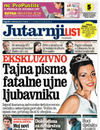TheInternational Civilian Office (ICO) in Pristina is closing on September 10. The representatives of the 25 countries responsible for the ICO including 20 EU countries, as well as Turkey, Croatia, Norway, Switzerland and the United States, are meeting in the Kosovar capital to endorse this new statute. The international monitoring was provided for in the 2007 plan designed by United Nations Special Envoy, Martti Ahtisaari. The ICO was established when Kosovo became independent on February 17, 2008.
The departure of the ICO does not mean the end of the international presence in the former Serb province, as notes Zagreb daily Jutarnji List —

NATO forces are still present and the EU mission, EULEX, continues to have a say in judicial issues. In this context, the term “full sovereignty” does not make much sense. Especially when, because of divisions within the international community and of the inability of the Kosovar authorities as well as of the international missions, Kosovo remains partitioned with the Serbs living in northern Kosovo still refusing to recognise Pristina's authority.
Receive the best of European journalism straight to your inbox every Thursday
In an interview with Dutch daily NRC Handelsblad, a former EU representative in Kosovo Pieter Feith, underlines the tasks that remain to be accomplished, notably concerning the rule of law, the economy and the fight against corruption. He recalls that five EU countries – Greece, Romania, Cyprus, Spain and Slovakia –

... thwarted projects allowing Kosovo to develop. They wanted it to be a failed state.
They may have been successful, if Jutarnji List is to be believed —

Kosovar institutions were set up with the agreement of the international community and not through democratic elections. The international community did not take measures after European observers noted that elections were marred by serious irregularities. [...] As for the fight against corruption, neither the Kosovar authorities nor the EU mission shine in this domain.
Serbia, whose leaders seem unable to resign themselves to the loss of Kosovo even if this harms negotiations to join the EU, is a key player in this crisis. As French daily Le Monde points out —

The intentions of Serbian leaders remain obscure since the victory of the nationalists in the May 6 general election. The EU keeps repeating that integration is conditional on a normalisation of relations between Belgrade and Pristina, while falling short of demanding clear recognition. For the time being, the discussions held in March 2011 between the two capitals have not resumed.
The international community still has a bright future in Kosovo, concludes Jutarnji List —

The end of monitored independence springs from the desire of the international community to spend less time on the Kosovar problem and to spend less funds there. Although it repeatedly stated it did not want to make the same mistakes it made in Bosnia-Herzegovina, the international community was unable to avoid them. NATO and the EU will have to stay in Kosovo for a long time. Yet, the decision to put an end to the monitored sovereignty of Kosovo is a strong message to Serbia: the independence of Kosovo is indisputable and Belgrade will have to live with it.
Was this article useful? If so we are delighted!
It is freely available because we believe that the right to free and independent information is essential for democracy. But this right is not guaranteed forever, and independence comes at a cost. We need your support in order to continue publishing independent, multilingual news for all Europeans.
Discover our subscription offers and their exclusive benefits and become a member of our community now!












